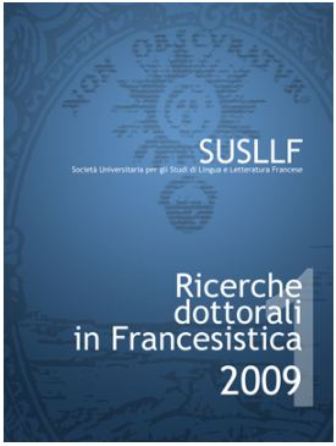Les prépositions dénominatives et déverbales: traces de survie de la synthèse latine en français moderne
Abstract
A study on the grammaticalization of deverbal, denominal and deadjectival prepositions in French out of Latin ablative absolute (AA) constructions has highlighted two main points of contact that could have allowed the process to take place: the preservation both of the original predicative quality and of the primal circumstantial syntactic function of the item-under-change. As a by-product, this study has provided arguments for the hypothesis that a residual, osmotic relationship could persist between Latin synthetic syntax and modern-French analytic syntax. In particular, this paper focuses on three statements of fact: (1) the grammaticalization of deverbal and denominal prepositions appears to be an imperfect process that has often left a double syntax as a legacy in modern French (ex. excepté ma soeur vs. ma soeur exceptée); (2) the synthetic origin of deverbal and denominal prepositions is responsible for their unique behavior amongst French prepositional devices; finally, (3) other syntactic constructions (such as participial or nominal sentences) can be found in modern French which clearly take a circumstantial value in the clause without relying on any external, grammatical coding device specifically devoted to the expression of marginal syntactic relations. These facts suggest that the circumstantial value of the ablative case may have followed two preservative paths: either (1) it has found in the French prepositional domain a consistent category where to survive both formally and functionally or (2) it has survived in the French syntax as a silent, deep functional category in spite of the loss of formal inflection. If this second point, in particular, could be confirmed by further research, this would mean that synthesis – that is, the power to convey semantic, morphologic and syntactic information as a whole – still has a place at the core of the French linguistic system.


